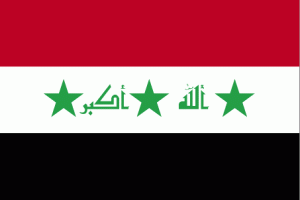
By: DAVID IGNATIUS
Among the soldiers of the First Infantry Division who are going home next week after a year in Iraq, it was an almost palpable feeling Monday: We’re out of here. It’s over. And in 12 more months, that will be true for the nation that sent them. The last U.S. troops are scheduled to leave in December 2011.
What comes after the American era in Iraq? In the trough of a nightmarish occupation, that question sometimes seemed unimaginable for Iraqis and Americans alike. But it’s now being debated in earnest by a new Iraqi government that, whatever its demerits, at least has gathered all the major players inside one tent.
Adm. Mike Mullen, chairman of the Joint Chiefs of Staff, met here Monday with Prime Minister Nouri al-Maliki and urged him to start planning now for a “long-term strategic partnership” in which the United States will continue training the Iraqi military and police, and providing other, unspecified security assistance. Mullen said later that Maliki seems to want such a relationship, “but the direction hasn’t been worked out.”
The biggest story about Iraq may be what hasn’t happened. There were widespread fears that when U.S. troops pulled out of Iraqis cities in mid-2009, the country would slip back toward civil war. That didn’t happen. The same fears were expressed when the last combat troops departed this summer. It didn’t happen then, either.
Anxieties about renewed sectarian violence were stoked, again, by the eight-month delay in forming a new government after last March’s elections. But the factions agreed last month on a compromise formula that will keep Maliki as prime minister, this time as head of a broad coalition that includes every major faction.
Maliki is hardly an ideal leader: He’s sometimes described as an Iraqi version of Richard Nixon: with a conspiratorial mind and a perpetually unshaven face. He’s nobody’s favorite, but he proved acceptable to everyone: America and Iran, Sunnis and Shiites, Arabs and Kurds.
Even the thorny issue of de-Baathification finally appears to have been solved by a compromise that will allow prominent Sunni politicians to join the parliament. Iraqi political style tends toward perpetual brinkmanship, with no issues resolved until the eleventh hour (or later). That frays the nerves of more compromise-minded Americans, but in the end, the Iraqis usually do find a political solution.
What the long bargaining process showed is that most Iraqis are exhausted by violence. Nobody but the terrorist fringe wants a return of civil war. As one official says, given the choice between an effective government and an inclusive one, the Iraqis opted for inclusive.
“Overall, I’m encouraged by what I see,” said Mullen. The Iraqi security forces “are better than a lot of people expected. They’re able to handle internal security.”
The numbers do show a trend that confounds predictions that Iraqi security forces couldn’t do the job. U.S. commanders count an average of about 15 security incidents a day in Iraq, which they say is about 20 percent below the rate last year, when American troops played a larger role, and roughly the same level of violence before the U.S. invasion in 2003.
An example illustrates the success of the Iraqi security forces – and also the continuing terrorist threat here. On Dec. 4, U.S. commanders passed the Iraqis intelligence that about 15 car bombs were about to be set off. The Iraqis stopped all but three – a big success but still a terrible toll.
The worry for U.S. officials is that post-America Iraq will slip back toward chaos if there isn’t a strong continuing security relationship. They fear a replay of the last scene of the movie “Charlie Wilson’s War.” The Americans leave (in that case, from the CIA’s proxy war against the Soviets in Afghanistan in the 1980s) to the relief of a war-weary public, and terrorism (in that case, Osama bin Laden and al-Qaeda) creeps into the vacuum.
Asked if Iraq has become the “forgotten war,” the U.S. deputy commander here, Lt. Gen. Robert Cone, bristled in a conversation with reporters Monday. “What we see today has been paid for in blood and riches” by U.S. soldiers and taxpayers, he said. He doesn’t want to see that investment lost in the relief of both Americans and Iraqis to be finally escaping the war’s shadow.
What comes next shouldn’t be another security vacuum. Surely there’s a midpoint between doing too much and doing nothing. WP

Leave a Reply
You must be logged in to post a comment.